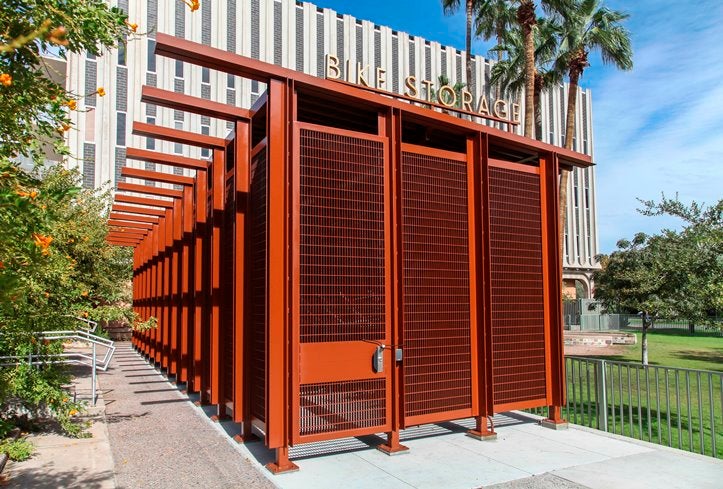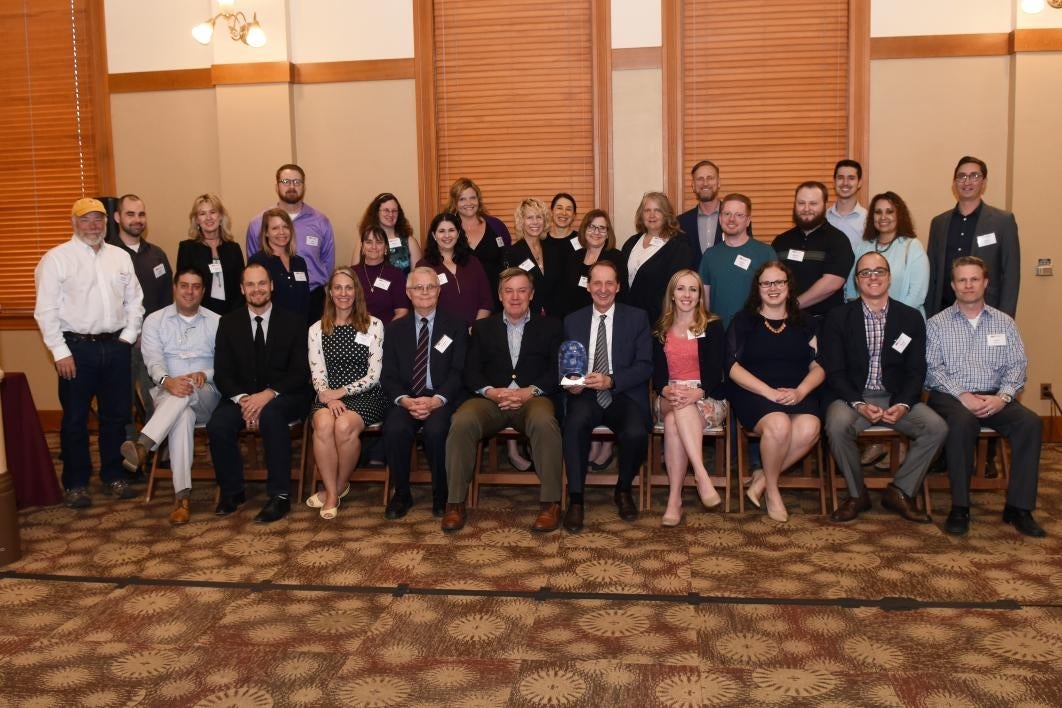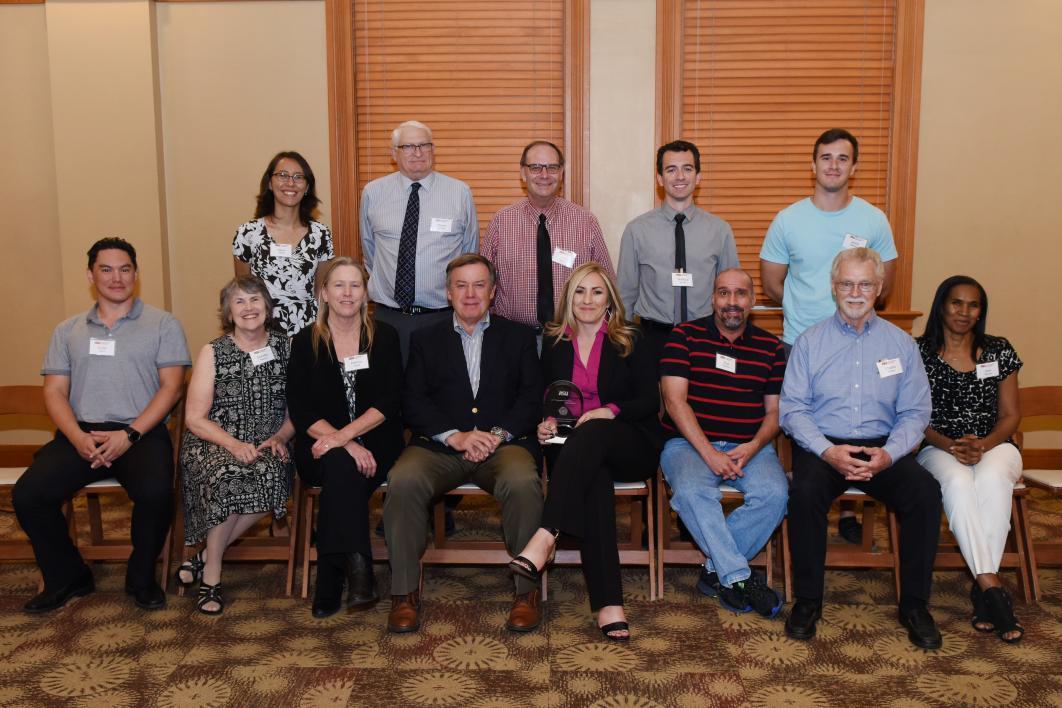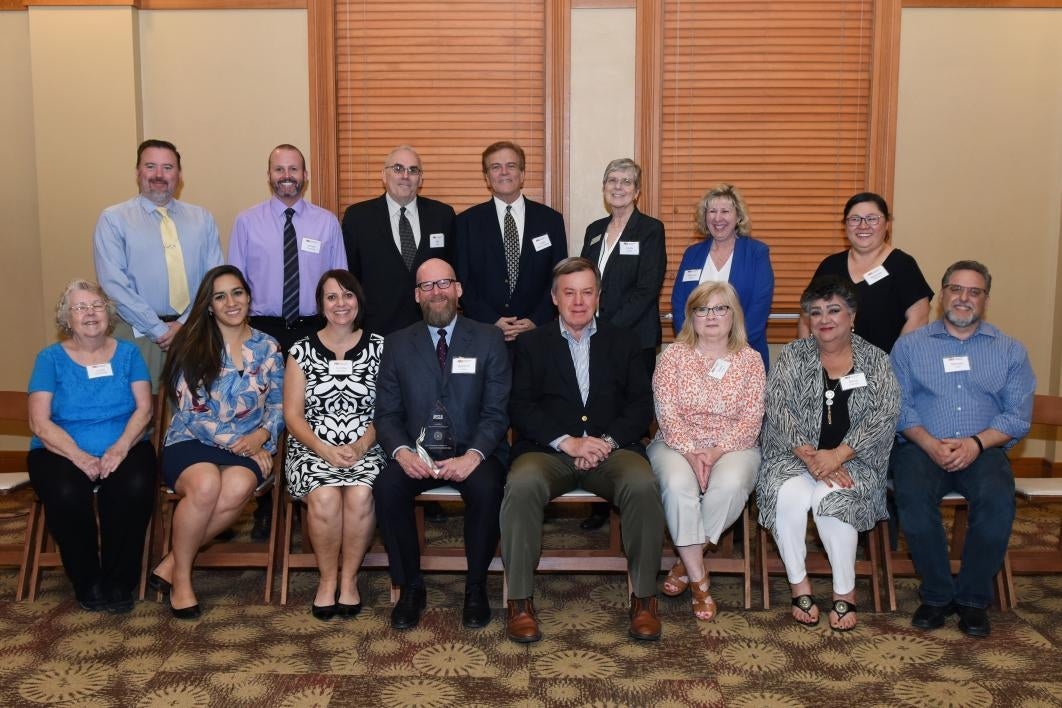A Sun Devil biking across campus might seem like no big deal, but there’s more to it.
For years, the university struggled with theft, a lack of bike lanes and inadequate bicycle parking. That was before Arizona State University’s Parking and Transit Services launched its bikeASU program, sparking a series of changes aimed at increasing bike use across the Valley campuses, particularly in Tempe.
It has been such a success that it was honored with a President’s Award on Wednesday.
“We give some of our most complex problems to Parking and Tranist,” ASU President Michael Crow said. “With innovations, there are few home runs; most things change a little at a time. These guys took a comprehensive look at everything.”
One of ASU's five card-access bicycle storage facilities.
BikeASU includes valet stations, card-access storage facilities and a more accurate registration process. The number of registered bikes has almost doubled since the program launched in 2014.
There are also bike priority areas and shared-use lanes to facilitate safe and convenient commuting, resulting in ASU being the first ever gold-levelThe designation was given to ASU by the League of American Bicyclists. Bicycle Friendly University in Arizona.
For some program organizers, it’s personal.
“The reason I do all of these things for the program is that I’m a bicyclist, too,” said JC Porter, assistant director for commuter services for ASU Parking and Transit Services and part of a seven-member bikeASU team. “I’m happy to see the university has implemented these services, and the students taking advantage of these opportunities.”
The President’s Awards were established by former ASU President Lattie Coor in 1996, and Crow has attended each ceremony since 2003. The awards honor ASU faculty and staff for developing creative and inspiring programs that promote innovation, sustainability and social embeddedness to advance the university, Arizona communities and schools.
“We have this idea that innovations should happen from the core,” Crow said, citing his vision for growth within the university, which has been named the nation's most innovative university by U.S. News & World Report two years in a row.
In addition to bikeASU, which was honored with a President's Award for Sustainability, other winners include:
President’s Medal for Social Embeddedness
CarePRO: Care Partners Reaching Out
CarePRO is an evidence-based, psycho-educational skills-building intervention for family caregivers of people with dementia. It fosters caregiver empowerment and reduces caregiver stress and distress and enhances positive coping and emotional well-being. Offered in English and Spanish, CarePRO has been successfully embedded into local Alzheimer’s Association chapters across Arizona and Nevada since 2009.
President’s Award for Innovation
Global Freshman Academy
ASU’s Global Freshman Academy gives learners anywhere in the world the opportunity to earn entry-level university credit after successfully completing digital immersion courses hosted on the edX platform, which are designed and taught by leading scholars at ASU. By allowing students to learn, explore and complete courses before applying or paying for credit, GFA reimagines the freshman year and reduces academic and monetary barriers while opening a new path to a college degree for many students.
President’s Award for Innovation
The Bridge: Chemical Purchase Management and Compliance Integration
This is a collaboration between Environmental Health and Safety, Purchasing, University Technology Office and University Business Services to develop software that automatically enters chemicals into researchers’ inventory based on purchase information. It tracks where all chemicals are stored and used to ensure safety and regulatory compliance.
President’s Award for Sustainability
New Student Orientation Zero Waste Lunches
The 2016 New Student Orientation lunches on the Tempe campus collaborated across university partners to incorporate zero waste operations and engagement practices into the lunches. More than 17,000 meals were served to more than 13,000 guests resulting in a total of 11,664 pounds of waste, all of which was diverted away from the landfill either being recycled or composted.
SUN Award for Individual Excellence
• Erica Buschatzke, Leadership and Interdisciplinary Studies, College of Integrative Sciences and Arts
• Jamie Wright, Information Technology Services, College of Public Service & Community Solutions
• Pamela Marshall, School of Mathematical and Natural Sciences, New College of Interdisciplinary Arts and Sciences
• Marsha Patton, The Polytechnic School, Ira A. Fulton Schools of Engineering
More Science and technology

Science meets play: ASU researcher makes developmental science hands-on for families
On a Friday morning at the Edna Vihel Arts Center in Tempe, toddlers dip paint brushes into bright colors, decorating paper fish. Nearby, children chase bubbles and move to music, while…

ASU water polo player defends the goal — and our data
Marie Rudasics is the last line of defense.Six players advance across the pool with a single objective in mind: making sure that yellow hydrogrip ball finds its way into the net. Rudasics, goalkeeper…

Diagnosing data corruption
You are in your doctor’s office for your annual physical and you notice the change. This year, your doctor no longer has your health history in five-inch stack of paperwork fastened together with…








